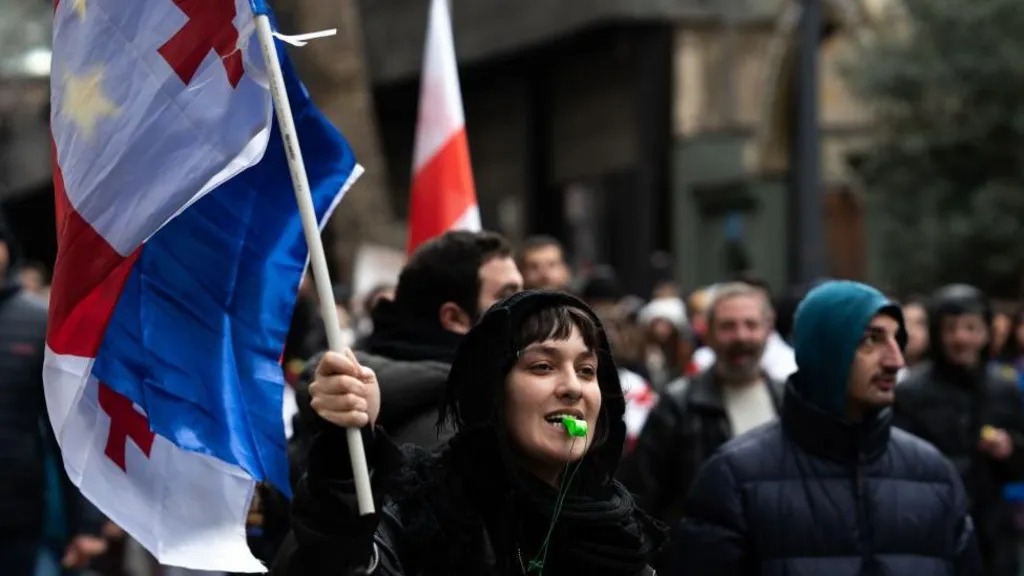
Georgia’s Turmoil Deepens with Kavelashvili’s Appointment
Georgia is witnessing an escalation in political unrest as Mikheil Kavelashvili, a former footballer and MP, is set to be appointed president on Saturday. The decision, made by the ruling Georgian Dream party’s disputed parliament, comes amid mass protests fueled by allegations of election fraud and democratic backsliding.
Kavelashvili, aged 53, represents the ruling party’s increasingly authoritarian stance. The opposition, including four major political groups, has boycotted the parliament, dismissing the October elections as rigged.
Outgoing president Salome Zourabichvili has denounced Kavelashvili’s appointment as illegitimate, while Prime Minister Irakli Kobakhidze emphasized that the government would maintain control over the escalating situation.
Protests and EU Accession Setbacks
The protests, which initially began after the disputed elections, intensified when the government announced it was halting EU accession talks until 2028. This move defies the overwhelming public support for EU membership enshrined in Georgia’s constitution.
Every night, the main streets of Tbilisi are filled with demonstrators waving EU flags, demanding new elections and accountability. Protests have drawn participation from diverse groups, including IT professionals, public sector workers, and theatre artists, united in their demand for a democratic Georgia.
Opposition and Allegations of Authoritarianism
The EU and US have expressed concern over democratic backsliding under Georgian Dream’s leadership, with accusations of the government dragging Georgia into Russia’s influence. Over the past two weeks, more than 460 protesters have been detained, with reports of torture and inhumane treatment. Transparency International has called attention to these abuses, urging international sanctions against the government and its founder, Bidzina Ivanishvili.
Kavelashvili’s People’s Power party, known for its anti-Western rhetoric, has labeled opposition groups as foreign-funded agents. Meanwhile, attacks on civil society activists and journalists have increased, drawing condemnation from the international community.
- External Link: More on Georgia’s Political Crisis
- Internal Link: Learn About Global Political Movements





